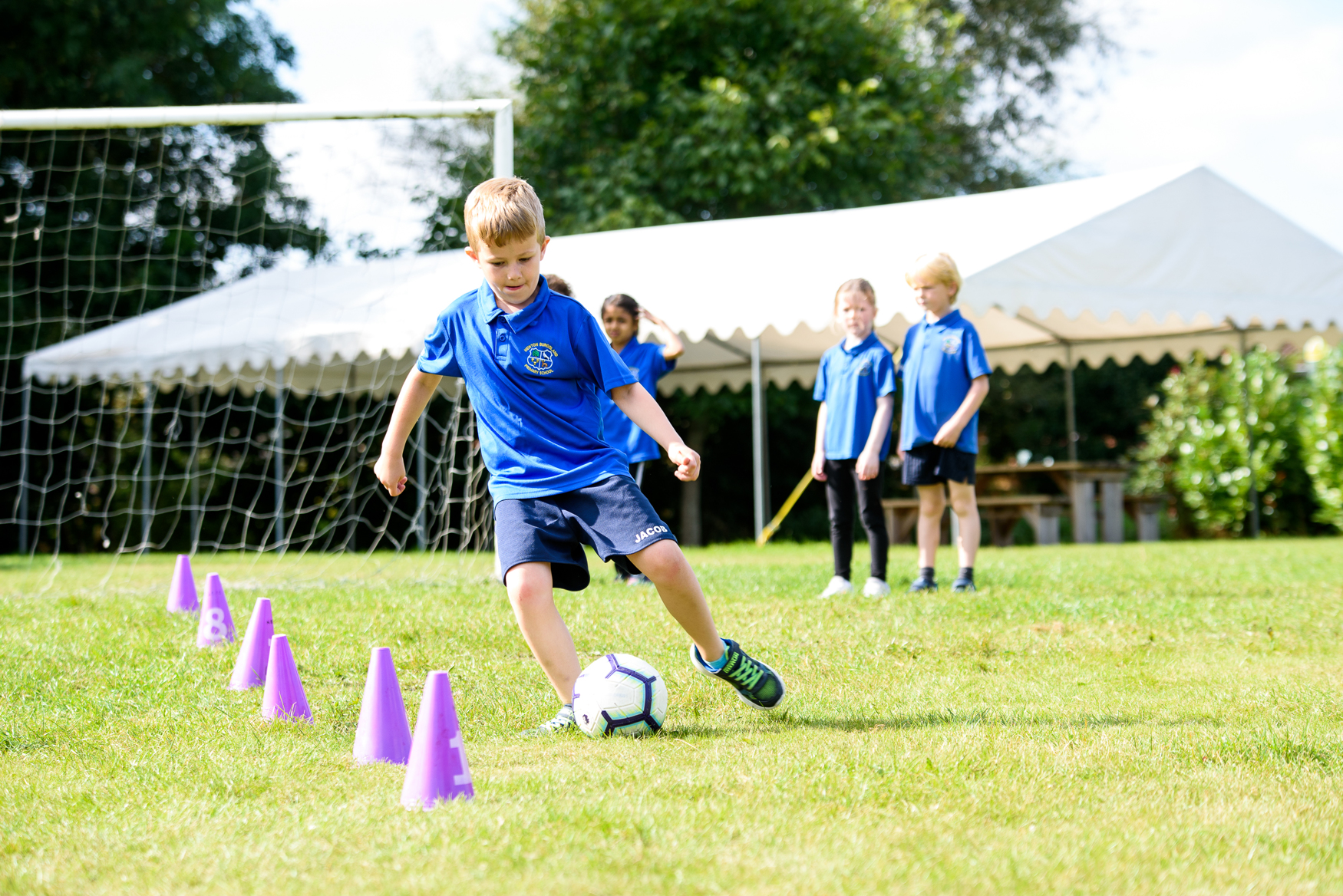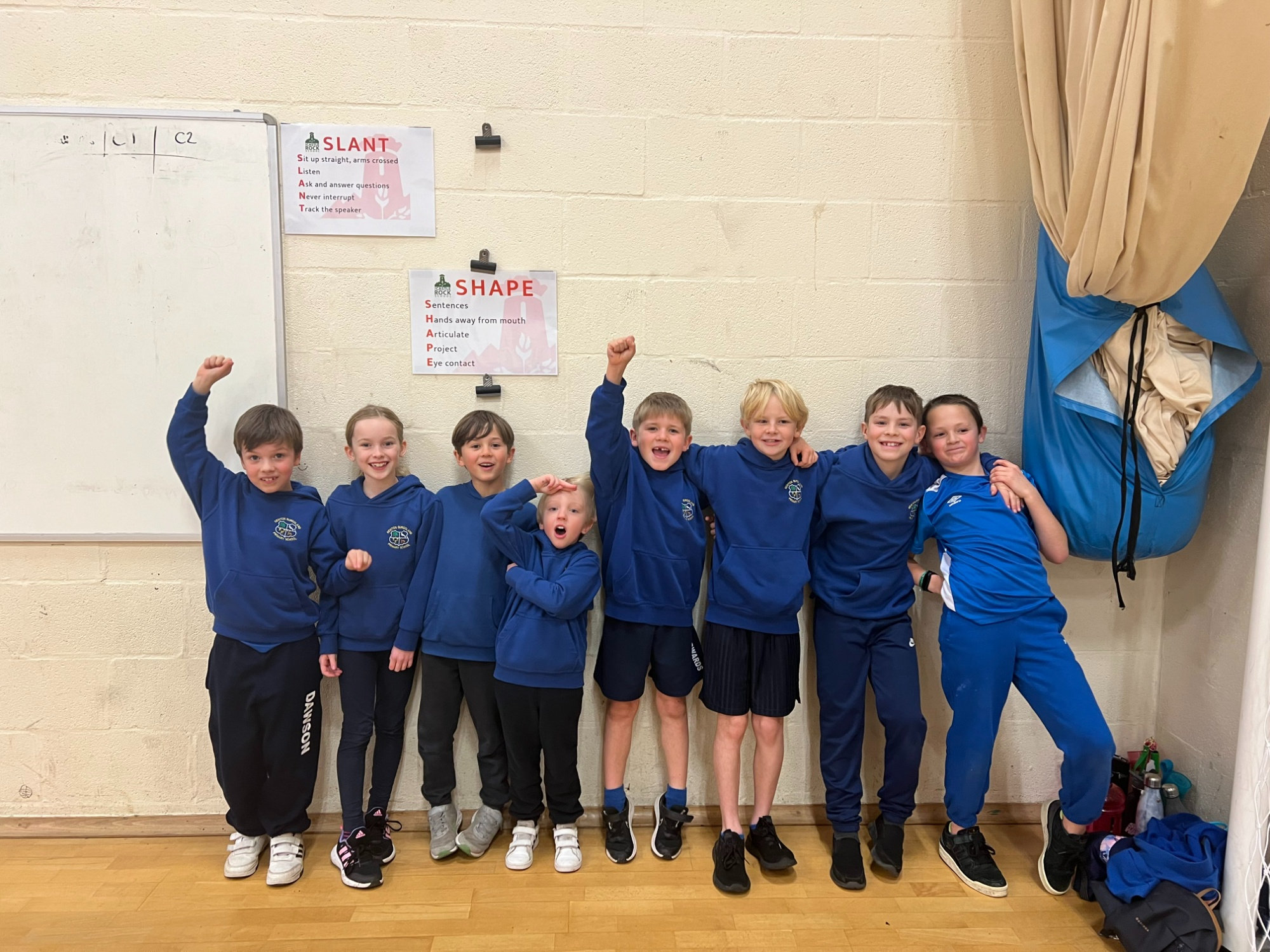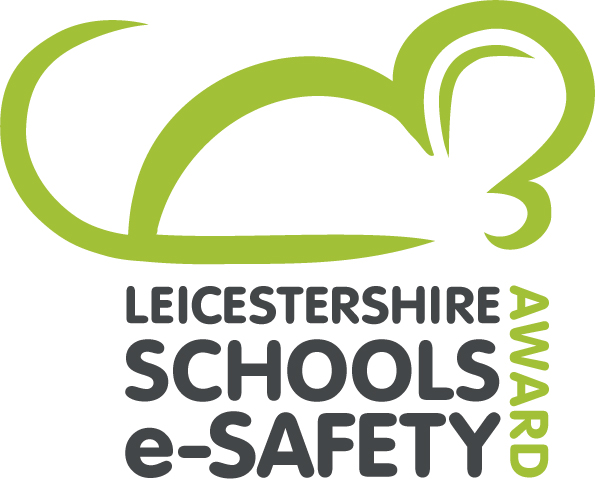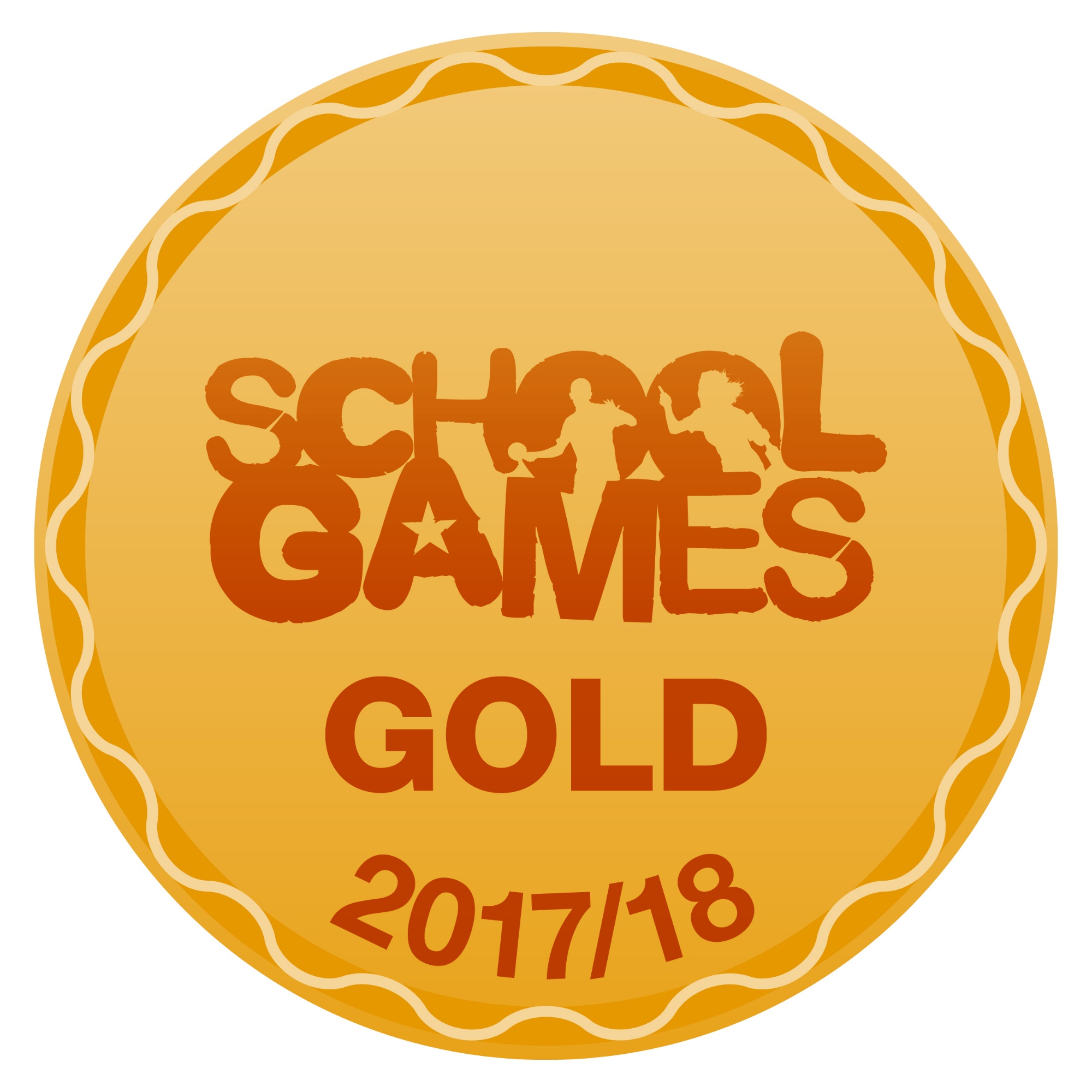PE and Sport
Together We Make Learning A Memorable, Unmissable Adventure
A high-quality physical education curriculum inspires all pupils to succeed and excel in competitive sport and other physically-demanding activities. It should provide opportunities for pupils to become physically confident in a way which supports their health and fitness. Opportunities to compete in sport and other activities build character and help to embed values such as fairness and respect.
Newton Burgoland Primary has a high quality PE curriculum that inspires and gives opportunities for all children to succeed and excel in competitive sport and physically demanding activities. The curriculum provides a range of activities which allow children to learn a broad range of life skills such as communication, collaboration and competition.
We provide opportunities for all learners to become physically confident in a way which supports children's health and fitness by engaging in various activities which encourage independent learning. Skills developed can also help to build character and embed values such as fairness, teamwork, resilience and respect.
The PE curriculum at Newton Burgoland Primary enables children to develop an understanding of how to improve in many different physical activities and encourages children to evaluate, reflect, analyse and recognise their own and others' successes.
All pupils access 2 hours of high quality PE each week delivered by a specialist coach provided by our partner - Coach unlimited. We have chosen to work with Coach Unlimited because their ethos and values reflect our own.
Intent
|
We want all learners to reach at least the expected National Curriculum standard by the end of year 6 and to be keen to continue to be active throughout their lives finding a sport that they love. Inspiring all pupils to enjoy, succeed and excel in competitive sport and other physically demanding activities to achieve life-long health and well-being. The PE lesson should be one our learners look forward to and greet with enthusiasm. They should leave the lesson having been stretched physically and mentally with a strong sense of well-being. |
When learning in PE, learners will draw on their developing learning habits, making progress in their ability to persevere, work effectively as a team, respect and celebrate difference, ask questions and create.
60 minutes a day for every child is our goal, including time spent out of school.
We recognise that not all learners enjoy competition and traditional sports- our curriculum and extra-curricular offer at playtimes, lunchtimes and after school reflects this diversity whenever possible.
Our ethos is - maximum activity, challenge for all, focussed learning, effective modelling, positive environment.
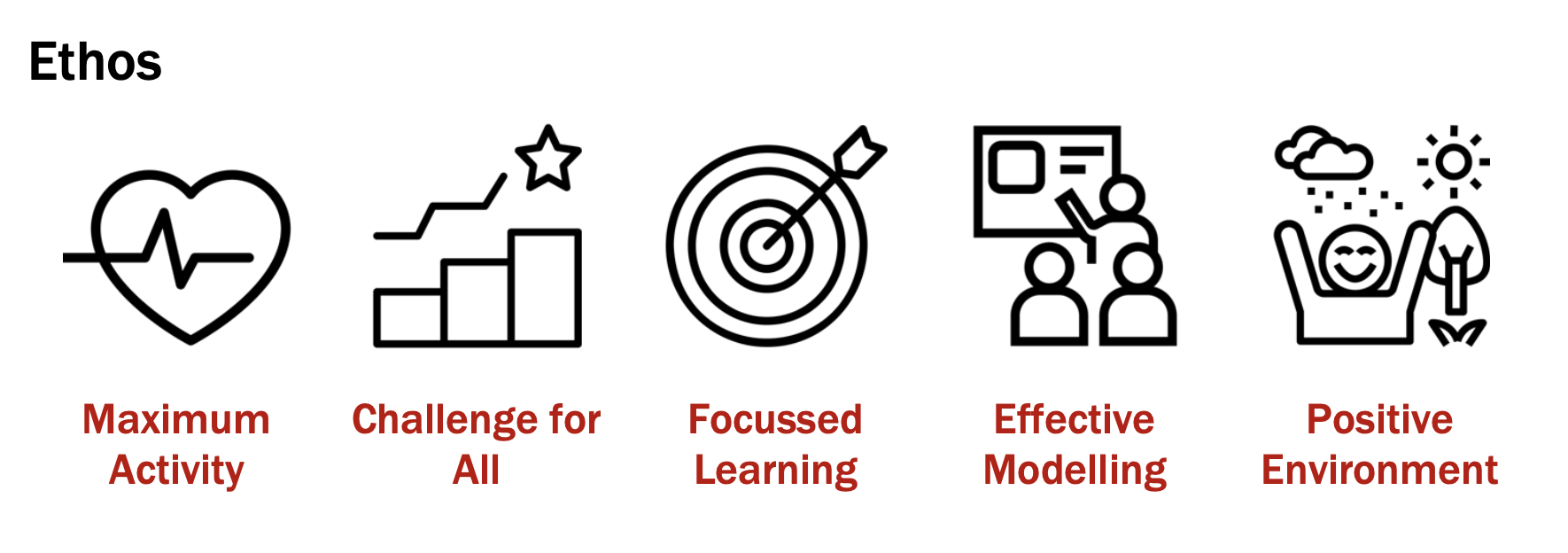
Implementation
The school is a member of ‘North West Leicestershire Sports Partnership’ and ‘Unity Small Schools Partnership’- as members of these organisations we compete in cross-country, gymnastics, orienteering, tag rugby, football, dodgeball, tri-golf and athletics competitions. We signpost learners to the variety of local opportunities, which exist to be active.
In key stage 1 PE lessons aim to develop pupils fundamental movement skills. Learners are introduced to a variety of simple games; they develop increasing control over their own movements and learn to use equipment safely and with increasing dexterity. They learn to sequence movement and work with others. In team games they compete and develop tactics.
In key stage two leaners continue to develop movement skills building on their knowledge of simple games with an introduction to key sports- rules and strategies-techniques and leadership. Learners communicate, collaborate and compete. They learn to practise to improve, to evaluate and coach and to provide leadership. All key stage two learners enjoy leadership opportunities, including play coach, sports ambassadors, team captains and session leaders.
Unit overview 23/24
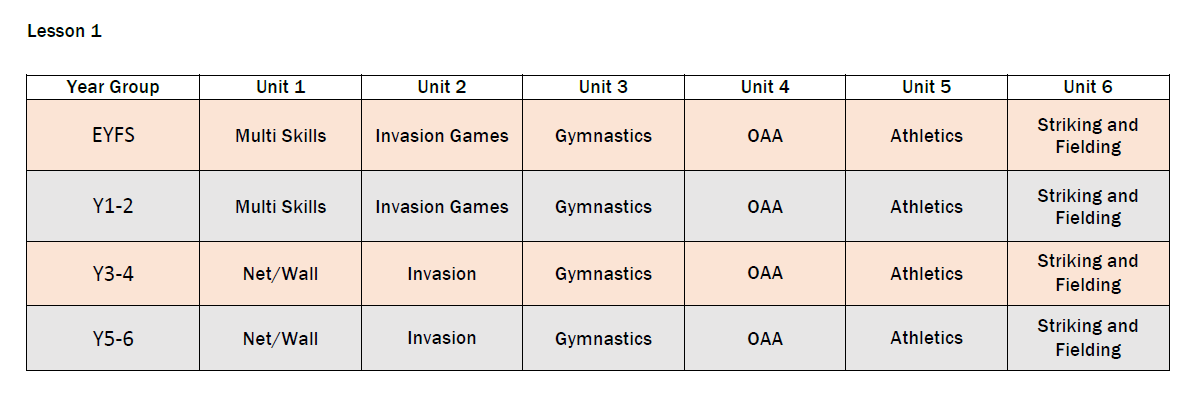

2 hours a week are allocated for PE lessons; in addition, pupils enjoy active playtimes, forest schools and after-school clubs. In year 3 and year 5 learners develop their knowledge of basic swimming strokes-to be able to swim at least 25 metres- water safety and self-rescue. In years 5 and 6 learners participate in an outdoor and adventurous residential.
As part of our work in PE, we work towards the School Games Mark which is a government led awards scheme which rewards schools for their commitment to the development of competition across their school and into the community. You can find out more about it here.
We are extremely proud of the fact that we achieved the GOLD award again in 2019/20 and 22/23
Assessment Recording and Reporting
In all subjects there are three broad areas for assessment:
- Children’s knowledge and understanding
- How well children can use and apply their knowledge, understanding and skills at the end of a unit of work to complete an independent (of an adult) task or challenge.
- How well learners are developing habits for learning and character
PE is a largely practical subject
Coaches assess learner’s work, their attitudes, increasing skills, knowledge and understanding, by making informal judgements as they observe them during lessons. This assessment enables planning to be tailored to meet learners needs. Assessment encompasses teacher, peer and self-assessment. In all subjects, opportunities for both Assessment for Learning and Assessment of Learning are built into provision. Learners are supported to reflect on their own learning and, age appropriately, to make judgements about their strengths and needs, beginning to plan how to make progress and set personal targets.
Baseline assessment, in order to understand pupils’ prior learning, is an essential part of planning to ensure new learning is relevant and progress can be assessed.
The learners work, in particular baseline assessments and end of unit assessments, are used to make decisions at the end of each unit, and at the end of each year, as to next learning steps and whether or not learners are making strong progress and are on track for end of key stage expectation.
Progress is recorded and reported to parents as part of the child’s annual school report.
Assessment record sheets are provided below.
Special Education Needs
PE is taught to all children, whatever their ability, in accordance with the school curriculum policy of providing a broad and balanced education to all children. Teachers provide learning opportunities matched to the needs of children with learning difficulties.
Example progression plan:
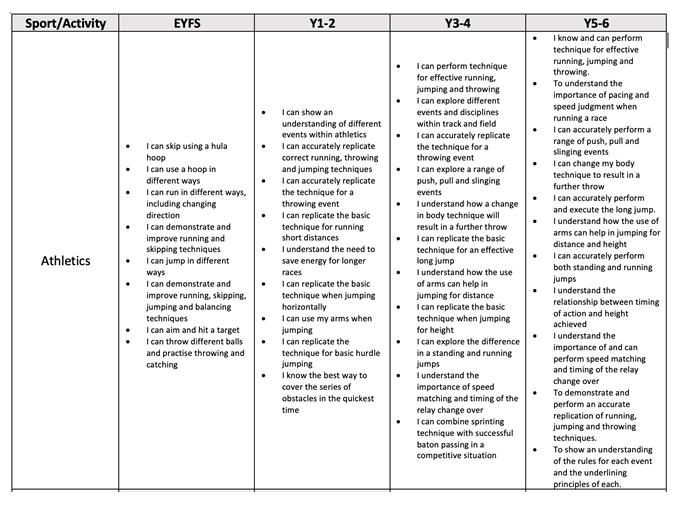
Our curriculum drivers in PE
Reading
PE is active. There mate some occasions when reading is included within lessons, but we recognise th importance of being physically active for as much of the lesson as possible,
Character, Creativity, reasoning and communication
In PE lessons start with reference to our learning habits. These have been rewritten specifically for PE and all learners are encouraged to challenge themselves during lessons and to evaluate their performance.
Impact
Following school closure, parents indicated concern about children levels of fitness - We worked had to address this with additional PE time, an increased offer of extracurricular sport and increased forest school opportunities across the school.
Most children have now returned to pre-pandemic levels of fitness and skill. There remain some gaps in swimming which will be addressed through an increased swimming offer in 2022/ 23 and 2023/ 24.
the national curriculum
The national curriculum for physical education aims to ensure that all pupils:
- develop competence to excel in a broad range of physical activities
- are physically active for sustained periods of time
- engage in competitive sports and activities
- lead healthy, active lives.
Please note that pupils wear our school PE kit to school on PE days.
If you are interested in taking any of the sports that we do further, then you can follow the link for a list of local clubs, or speak to Mrs. Ward. http://www.nwleics-ssp.org.uk/community-sport/
Pe in early years foundation stage
Physical development involves providing opportunities for young children to be active and interactive; and to develop their co-ordination, control, and movement. Children must also be helped to understand the importance of physical activity, and to make healthy choices in relation to food
Physical development has two aspects:
Moving and handling: children show good control and co-ordination in large and small movements. They move confidently in a range of ways, safely negotiating space. They handle equipment and tools effectively, including pencils for writing.
Health and self-care: children know the importance for good health of physical exercise, and a healthy diet, and talk about ways to keep healthy and safe. They manage their own basic hygiene and personal needs successfully, including dressing and going to the toilet independently.
Learning in PE will support learning in Personal, Social and Emotional Development and Communication and Language.
Invasion, striking & fielding and net & wall games
Children are given the opportunity to develop their throwing and catching skills, as well as their kicking skills through a range of sports such as; hockey, netball, rugby, basketball and football. They learn badminton, volleyball and tennis skills also. They develop their striking and fielding skills through cricket and rounders.
Swimming and alternative sport
Children are provided with the opportunity to go swimming in key stage 2, as well learn how to perform self-rescue. By the end of year 6, children are expected to be able to swim confidently over a distance of at least 25 metres.
We aim to provide children with a range of alternative sports also, including curling and archery. In 2018/19 we experienced: fencing, green bowls, curling, canoeing, climbing and abseiling.
GYMNASTICS & DANCE
Children are taught a range of gymnastic skills, giving them the opportunity to practise and develop them, before putting them into a routine. A number of pupils enter the local gymnastic competition and several have gone on to join local clubs and compete nationally. A variety of and range of dance opportunities from Zumba to maypole dancing are provided with pupils learning and performing.
Working together to create our own dance.
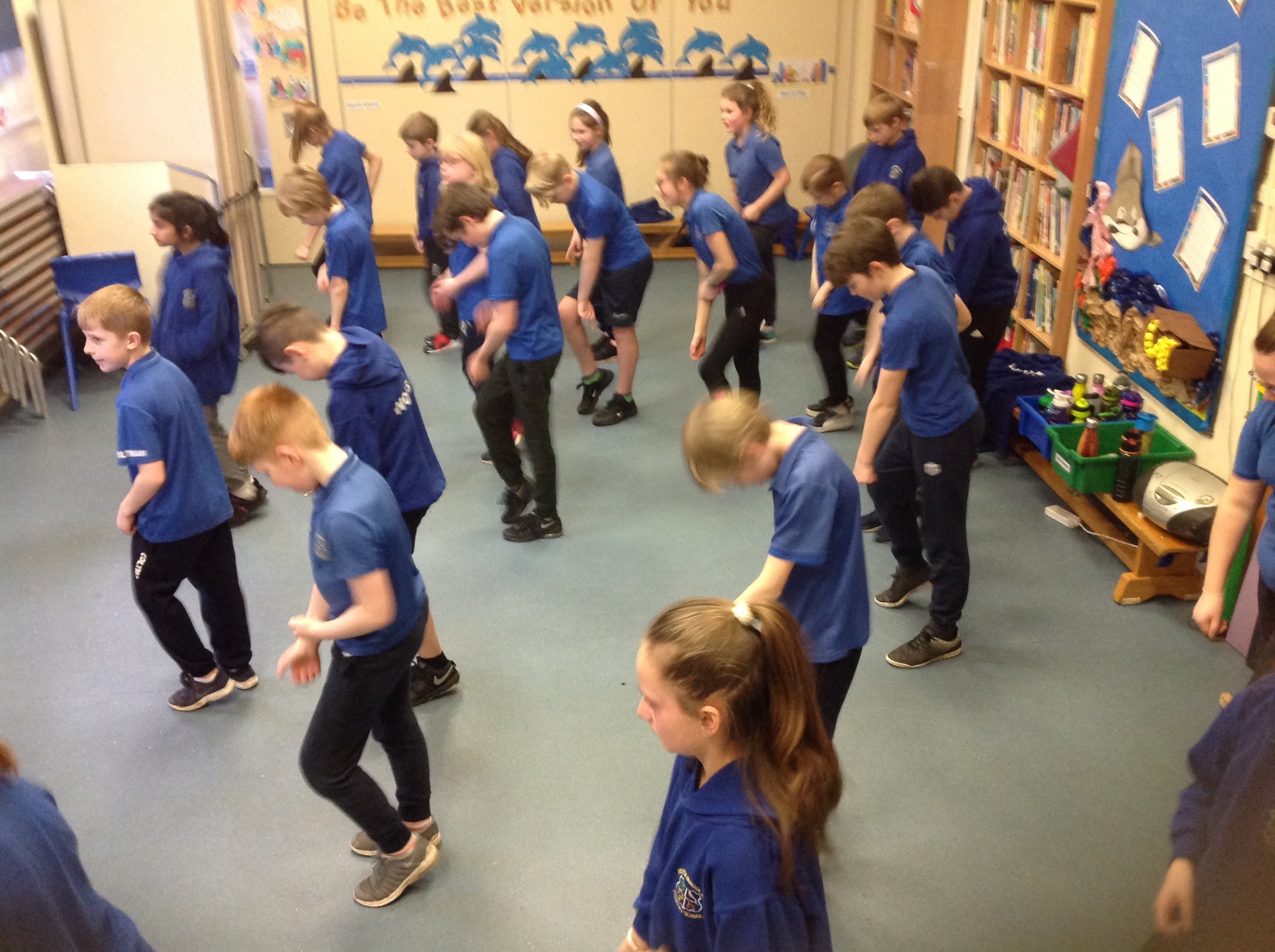
ATHLETICS & OUTDOOR AND ADVENTURE
Children work on their individual skills in athletics, including running, jumping, throwing and catching. year 5 and 6 take part in the local orienteering competition. A number of pupils are involved in the local schools cross country league.
Our popular residential for year 5 and 6 includes: canoeing, bridge building, designing land buggies and the high rope course.

Typical achievement in EYFS
|
Pupils achieving typically will, by the end of foundation, with increasing independence, knowledge and understanding be able to: |
|
|
Games • Throw underarm. • Hit a large ball with a bat. • Move and stop safely. • Throw and catch with both hands. • Throw and kick in different ways.
Gymnastics • Curl, tense, stretch and relax. • Travel and balance with some control.
• Roll, curl, travel and balance in different ways
|
Dance • Move to music. • Copy dance moves. • Perform my own dance moves. • Make up a short dance. • Move safely in a space General / Heathy lifestyle • Copy and repeat actions and skills. • Move with control and care. • Use equipment safely. • Follow simple rules • Enquire and create
|
Typical Achievement in KS1
|
Pupils achieving typically will, by the end of key stage 1, with increasing independence, knowledge and understanding be able to: |
||
|
Games Use hitting, kicking and/or rolling in a game. Decide the best space to be in during a game. Use one tactic in a game. Follow rules. Gymnastics Plan and perform a sequence of movements. Improve my sequence based on feedback. Think of more than one way to create a sequence which follows some ‘rules’. Work on my own and with a partner.
|
Dance Change rhythm, speed, level and direction in my dance. Dance with control and coordination. Make a sequence by linking sections together. Use dance to show a mood or feeling. General / Heathy lifestyle Copy and remember actions. Talk about what is different from what i did and what someone else did. Evaluate and improve Create rules Explain simply the importance of an active life style Express preferences and interests Choose to be active |
|
Typical Achievement in KS2
|
Pupils achieving typically will, by the end key stage 2, with increasing independence, knowledge and understanding be able to |
|
|
Games
Gymnastics
Dance
|
Athletics
Outdoor and adventurous
Swimming
General/ Heathy lifestyle
|
learning habits in PE
Each lesson supports our curriculum intent by focusing on a particular learning habit.
Learning habits for PE are displayed in the hall. Success is celebrated in our Friday assembly.
inter-school competition 23/24
Dodgeball Y3/4
On Monday 20th November 2023, a group of children in Class 3 attended a Dodgeball festival at Castle Rock in Coalville. This involved the children being put into mixed teams of children from other schools in the local area and playing several tournaments. It was an amazing opportunity, and we are extremely grateful to have taken part.
Dodgeball Y5/6
We worked hard and really enjoyed the challenge of playing against other schools. Sadly, we were not placed but we were Noticabley Newton.
Sports Hall Athletics Y5/6
This was physically challenging but great fun.
Swimming Gala
March 24 The children were brilliant. We won a number of races and came fourth overall.
Cross Country
A huge thank you to our team captain, Mrs Hollingsworth. This season, our year 5 girls have won a trophy. In addition, 4 of our pupils were selected to run for the county.
Orienteering
March 24
Personal Best Fest
April 10th
Tag Rugby Event - class 3
24th April 4.30
Flag football Event - Class 4
15th May
Tigers Rugby Event - class 4
18th June

